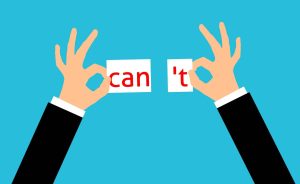The Power of Belief: Its Meaning and Impact

The Myth of Belief: How It Makes and Defines You
The power of belief, its understanding and impact is the most misinterpreted part of being human and yet beliefs are the building blocks of who we are. We’re told to “believe in yourself” or “stop believing the wrong things” so it’s obvious that belief is just a surface level concept.
But beneath the surface is a deeper truth: belief isn’t something we choose to adopt or reject; it’s part of who we are, including dispositional belief which shapes our actions and occurrent belief which comes to the forefront of our minds in specific situations.
The Power of Belief in its Different Types
Beliefs come in many forms, each affecting different areas of our lives:
- Religious beliefs: These are convictions about the existence and nature of a higher power or god. They often provide a moral framework and a sense of purpose.
- Political beliefs: These are about how to organize and govern society. They shape our views on policies, leadership and social justice.
- Philosophical beliefs: These are about the nature of reality, knowledge and existence. They are the foundation of our understanding of the world and our place in it.
- Scientific beliefs: These are based on empirical evidence and the laws of the physical world. They inform our understanding of the world and drive innovation.
- Personal beliefs: These are deeply held convictions about ourselves, our values and our place in the world. They influence our self esteem, goals and interactions with others. Personal beliefs are linked to other beliefs within a cognitive framework, showing how each belief is connected to others to make sense.
Each type of belief is important in making us who we are and guiding our actions.
What Beliefs Are About
The content of beliefs is a topic of much debate among philosophers. Some say beliefs have a specific, defined content, others say the content of beliefs is more subtle and context dependent. One way to think about the content of beliefs is to consider propositional attitudes.
Propositional attitudes are mental states directed towards propositions, such as beliefs, desires and intentions. Propositional attitudes are a central topic in the philosophy of mind and language.
Philosophers say the belief that P has the (propositional) content P. Various questions arise about how to characterise those contents and what determines them.
For example the question of whether beliefs are on a spectrum or binary is a topic of debate. Some philosophers say beliefs can be more or less confident, others say beliefs are all or nothing. Consider the power of beliefs in your life.
The Myth: Religious Beliefs are a Choice
For many religious belief is seen as a conscious decision, a rational choice made after weighing the evidence or being convinced by a good argument. This assumes beliefs are separate from who we are as individuals. But are they?
This overlooks the concept of dispositional belief which is about beliefs we don’t actively think about but still influence our behaviour and identity. This starts to peal back the power of belief and its impact on us.
Beliefs aren’t just intellectual conclusions; they’re lived experiences. They shape how we see ourselves, others and the world. They’re embedded deep in our psyche and affect our actions, emotions and relationships. To treat belief as a separate choice is to ignore how deeply it underpins our sense of self.
The Truth: Belief is Identity
 The power of belief isn’t something we hold; it’s something we are. From the moment we’re born we start building a framework of beliefs based on our experiences, upbringing and interactions with the world. These beliefs are the foundation of our identity – the lens through which we view our lives.
The power of belief isn’t something we hold; it’s something we are. From the moment we’re born we start building a framework of beliefs based on our experiences, upbringing and interactions with the world. These beliefs are the foundation of our identity – the lens through which we view our lives.
These beliefs aren’t just thoughts but are reflected in our dispositional behaviour, how we act and react in different situations.
When predicting human behaviour philosopher Daniel Dennett describes the ‘physical stance’ as applying knowledge of physical laws, the ‘design’ stance as applying functional attributions and the ‘intentional’ stance as applying mental states.
For example the belief “I am worthy of love” isn’t just a thought; it’s a core part of our identity. It shapes how we interact with others, the boundaries we set and the opportunities we go for.
And the belief “I am unlovable” becomes a self fulfilling prophecy, impacting every area of our lives. This reflects the power of belief in our perception of reality.
Theories of Belief (Representationalism)
Representationalism is a good way to think about belief. This philosophical view says beliefs are mental representations of propositions. Beliefs are entities in our minds, stored and ready to be accessed or retrieved when needed.
Representationalists say these mental representations play a causal role in our behaviour, how we act and react in different situations. By seeing beliefs as stored mental entities we can see how they shape our actions and decisions over time.
The truth value of different names or propositions can give rise to different beliefs as explored in Frege’s Puzzle and the subtleties of propositional attitudes.
Belief and Knowledge
 The relationship between belief and knowledge is complicated and has been well examined in philosophy. The traditional analysis of knowledge takes propositional knowledge to be a kind of belief – justified true belief.
The relationship between belief and knowledge is complicated and has been well examined in philosophy. The traditional analysis of knowledge takes propositional knowledge to be a kind of belief – justified true belief.
Most modern treatments of knowledge are modifications or qualifications of the traditional analysis and so also take knowledge to be a kind of belief. But there may be kinds of knowledge that are not kinds of belief though they have been less examined by epistemologists.
Is belief necessary for knowledge is a matter of debate. Some philosophers say belief is a necessary condition for knowledge, others that knowledge can exist independently of belief.
For example some philosophers say knowledge can be implicit or tacit and we can know something without believing it. This is also known as direct knowledge. The power of belief is not to be underestimated in its role it plays in what we think we understand about ourselves.
Belief Systems
A belief system is a network of interconnected beliefs that provides a framework for the world. Think of it as a web of mental representations that helps us make sense of our experiences and guide our behaviour. Belief systems are influenced by many factors – culture, upbringing, personal experiences.
They’re not static; they evolve as we get new information and experiences. Understanding belief systems allows us to see how individual beliefs are part of a bigger, cohesive structure that shapes our world view.
The question to reflect on is to consider the power of belief and your potential to investigate the very foundation of that world view.
Beliefs are on a Spectrum
Beliefs are on a spectrum, from complete confidence to complete skepticism. This spectrum is often called the ‘degree of belief’. The degree of belief is a measure of how confident someone is in a particular belief. For example someone may have a high degree of belief in gravity but a lower degree of belief in aliens.
The idea that beliefs are on a spectrum is supported by empirical evidence from psychology and neuroscience. For example studies have shown the brain processes beliefs in a graded way, more confident beliefs are associated with more activity in certain brain regions.
And psychological studies have shown that our beliefs can be influenced by many factors – emotions, social pressure, cognitive biases. Consider the power of your beliefs…
Belief, the Ego and Human Behaviour
At the heart of belief is the ego, the construct of self that needs to define and protect who we think we are. The ego clings to beliefs because they give us a sense of stability and security. The ego’s attachment to beliefs shapes our behaviour, how we act and react based on the stability and security they provide.
Even when beliefs are harmful or outdated the ego won’t let them go because it’s afraid of the loss of identity they represent.
That’s why challenging beliefs can feel so scary. It’s not just an intellectual exercise but an existential one. To question a belief is to question who we are. It means we have to face the uncomfortable possibility that the foundation of our identity might be wrong.
The power of belief is often something we hide behind, because we are afraid to know the truth for ourselves.
Belief Systems and Transformation
True personal growth requires a complete overhaul of belief. Generally speaking this isn’t a surface level adjustment but a deep transformation. It means stripping back the layers of inherited, unconscious beliefs to get to the deeper truths of who we are.
For example someone who’s always believed “I’m not good enough” has to go back to the source of that belief. Was it a critical parent? A traumatic experience? By bringing such beliefs into conscious awareness we can start to untangle them from our identity and replace them with more powerful stories.
Language and Belief
Language is a powerful tool in shaping our beliefs and our understanding of the world. The words and concepts we use shape how we think and what we believe. Language can reinforce existing beliefs or challenge and change them.
For example the way we talk about foreign affairs shapes our political beliefs, the language in religious texts reinforces religious beliefs. The relationship between language and belief is complex and dynamic, which is why mindful communication is so important in shaping our mental landscape.
In summary belief is a complex concept influenced by many factors – culture, upbringing, personal experience. By looking at the different types of beliefs, the theories that explain them and the role of language in shaping them we get a deeper understanding of how beliefs shape our world and our place in it.
This is key to personal growth and transformation so we can consciously reframe our beliefs and therefore our reality.
Dispositional Belief Transformation
- Identify Core Beliefs: Reflect on the beliefs that drive your behaviour and emotions. Journaling or working with a coach can help reveal these underlying assumptions.
- Challenge Assumptions: Ask yourself “Is this really true?” and “Where did I get this belief?” Often we find our most deeply held beliefs are based on outdated or false information. Challenging assumptions means distinguishing between belief and positive knowledge which is based on proof or evidence.
- Embrace the Unknown: Letting go of a belief can feel scary but it’s also liberating. Embrace the unknown as an opportunity to rebrand yourself.
- Replace with Empowering Beliefs: Swap out limiting beliefs for ones that support your growth and well being. Affirmations and visualisations can help solidify these new stories.
The Collective Belief Factor
Here’s a surprise: beliefs aren’t just personal – they’re collective. Cultures, religions and societies are built on shared beliefs that shape our collective identity. Even within a group individuals may not hold the exact same belief but the shared understanding forms a collective identity.
The same applies to families, organisations and social groups. By looking at the collective beliefs we participate in we can see how our individual identity is influenced by the bigger picture.
Debunking the Myths About Belief
There are several myths about belief that need to be busted. One myth is that beliefs are binary – an individual either believes something or they don’t. But as we’ve seen above beliefs are on a spectrum and individuals can have varying degrees of confidence in a particular belief.
Another myth is that beliefs are always based on positive knowledge. But beliefs can be based on emotions, social pressure, cognitive biases. Beliefs can be influenced by cultural and religious beliefs, personal experiences and values.
And some people believe beliefs are fixed and unchangeable. But beliefs can be updated based on new evidence and experience. In fact updating beliefs is a key part of critical thinking and rational inquiry.
Summary
Belief isn’t a intellectual exercise or a matter of faith; it’s the foundation of identity. To understand belief is to understand ourselves.
By seeing the connection between belief and identity we can start our journey of self discovery and transformation, letting go of limiting beliefs and embracing new ones that are true to who we are.
Belief is reality – personal and collective. By looking at and changing our beliefs we can rebrand ourselves and the world.
Not Ready Yet?
Sign up for our Free Personal Development Course
